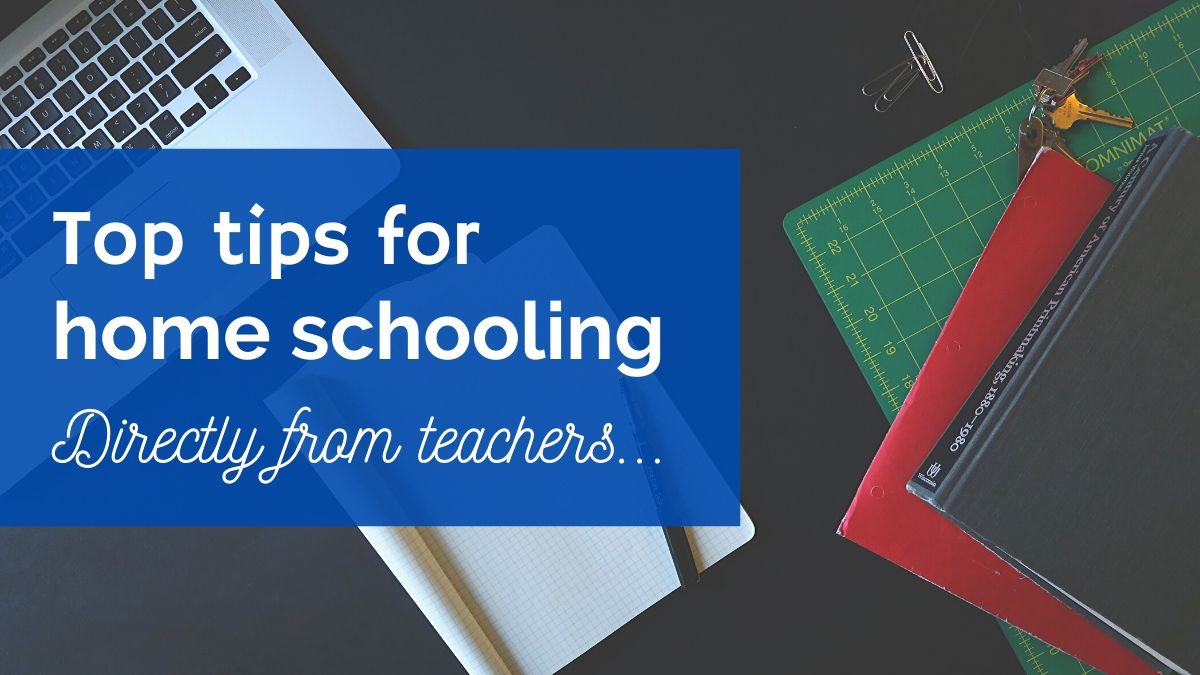
Before we jump right in, “well done parents, you are doing a fantastic job!”
Now that has been said, let’s get down to giving you some advice and tips from teachers that may just help you educate, develop and entertain you child at home now that the Easter break is over.
NB. If you have primary school aged children too, then we have some tips specifically for them as well, directly from primary school teachers. Click here!
1. Try and stick to their normal timetable structure
Most people thrive better when they have a routine and whilst it’s tempting to throw all routine out the window, it really will help when it comes to your child’s learning. English teacher, Miss Malone, encourages her students to “do English when they would normally have English, take their normal (and regular) breaks and finish working when the school day would usually finish”. If your child knows what their day holds, and when it’s due to finish, they’re more likely to focus and apply themselves.
2. It doesn’t need to be a full school day
Mrs Brown, Head of English at Queen Elizabeth’s Grammar School, Ashbourne, recommends making every lesson shorter than the usual hour they would have at school. “Lessons are that length at school because there’s approximately 30 children in the class. 1:1, 1:2 or even 1:3 ratios means the work can be done in a lot less time.” Less time on the usual lessons, means more time for practical learning…which leads us nicely on to our next top tip!
3. Encourage practical learning too!
It’s not all about the reading, writing and maths, it’s great to encourage your child to do some practical lessons too. Mrs Brown says, “all kids (even GCSE) have some practical lessons but younger ones especially are used to learning through play. Build a bird box or hedgehog hotel, put up a shelf or make a double bed (a challenge for any of us).”
4. Exercise is key!
Mrs Bowler, teacher at De Ferrers Academy Trust, remind us to not forget the power of exercise. “Children spend around an hour and 20 minutes or more outside playing each day, as well as PE lessons – factor it into the home schooling so that they can have some time away from the table.”
There are plenty of online exercise classes going on at the moment, so why not let your child choose what they want to do? Looking for some inspiration…check out Rayburn Tours’ latest blog on the ‘top free online exercise classes’.
5. Let the creative juices flow
It’s really important not to put too much pressure on students at this time. Miss Malone says, “from what I’ve seen, teachers are setting work to continue students learning but we are also mindful that we’re in strange, emotional times and it’s important to remember that! It’s a great time to let kids take on some creative projects. I’ve asked my students to do a photo journal of something they’ve enjoyed each day and write something about it. There are some other nice projects for well being out there!”
If you child’s teachers haven’t set any creative tasks then why not do a little research and set one of your own?
6. Help build independent learning and research skills
This type of learning will be very alien to your child (and you!) and so now is a great time to talk to them about how independent learning and research skills are important skills to develop for A level, University and life. Encouraging older students to take more ownership of their learning is a great way to start building these skills.
7. Tap into your home resources
As parents, you have an array of resources that teachers don’t have and they’re lying all around the house. Cook, bake, sew, paint, do some gardening – it’s real world, real life education at its finest!
8. Rewards can help
Mrs Bowler suggests, “use rewards just as school does. If your child is really focused and is showing a positive attitude to learning, use a rewards chart and plan to do something exciting once isolation is over!”
9. There’s a place for screen time
We all need a break so don’t be afraid of letting them watch TV or spending sometime on the iPad. Everything in moderation, right?
10. Forgive!
Miss Brown reminds us that forgiveness is key! She says, “the most important tip I could give parents is to forgive. Firstly, yourself – it’ll go wrong, you’ll get frustrated, it’s fine. And always forgive them. They’ll get mad, frustrated and upset, and they’ll say things they don’t mean. Forgive them and give them a clean slate every time.”
We’ve all been thrown in to this mad situation together so all you can do is try your best. If today’s not going to plan, then there’s always tomorrow!
DO YOU HAVE PRIMARY SCHOOL AGED CHILDREN TOO?
Take a look at these top tips from primary school teachers.